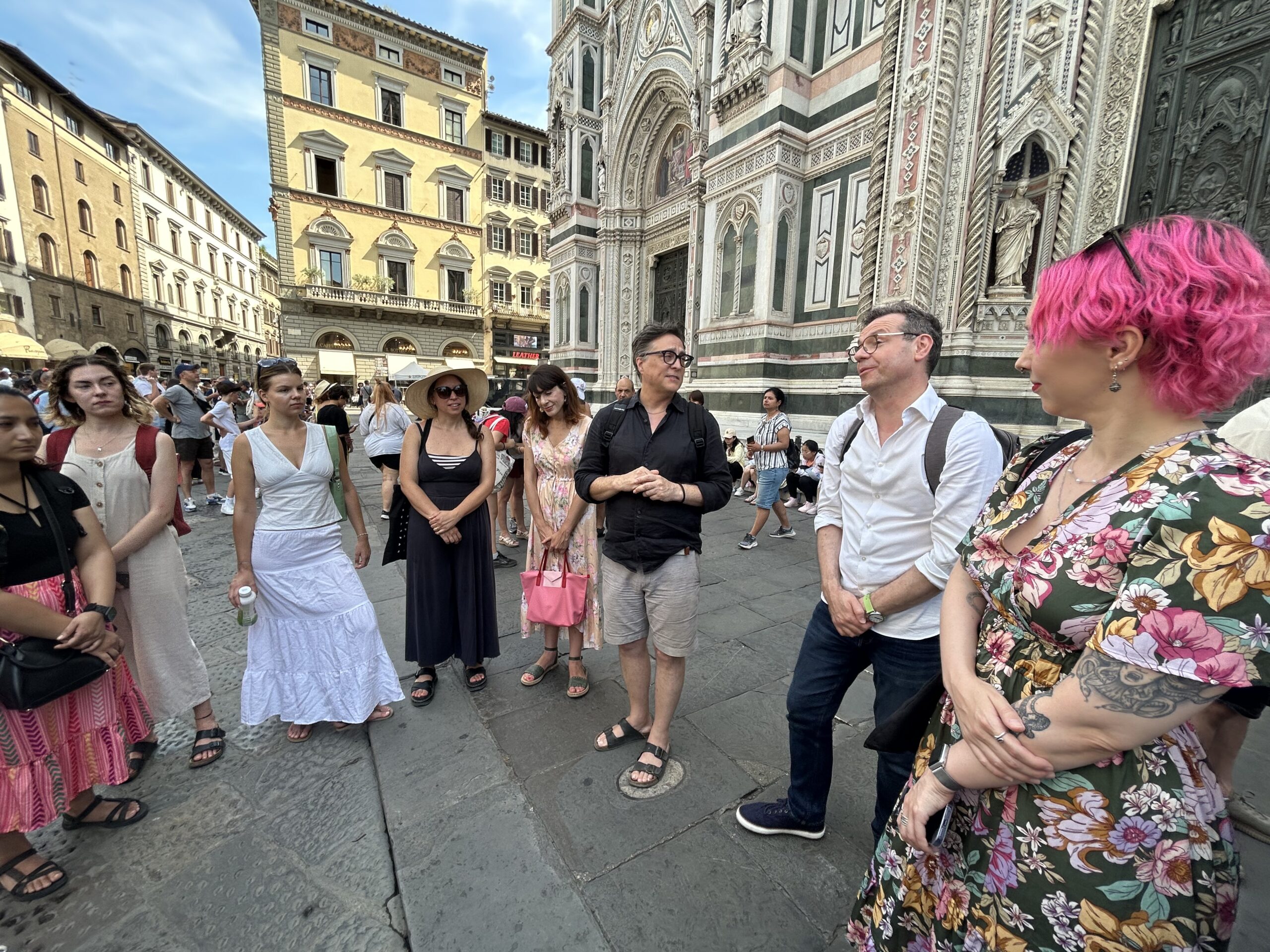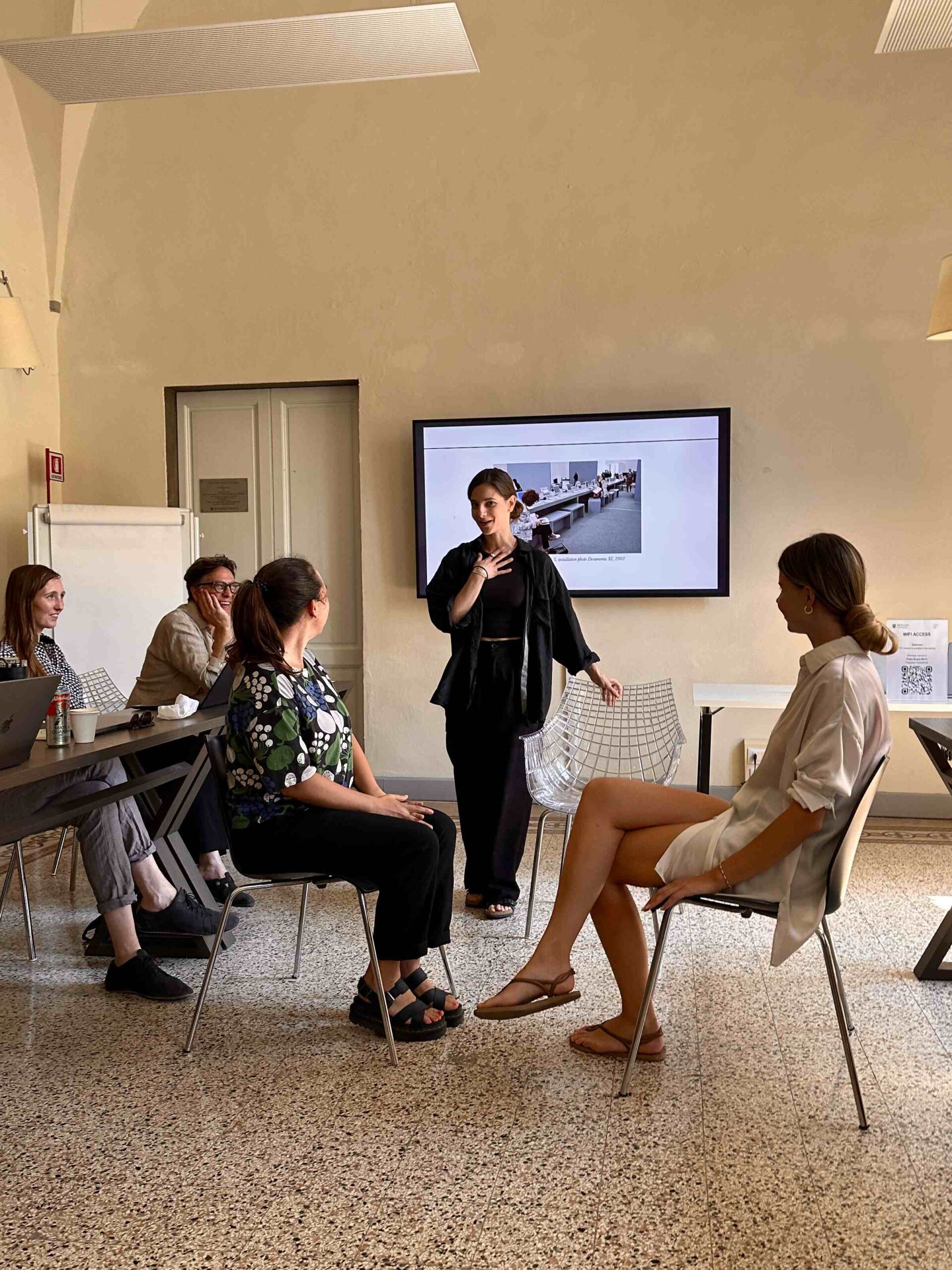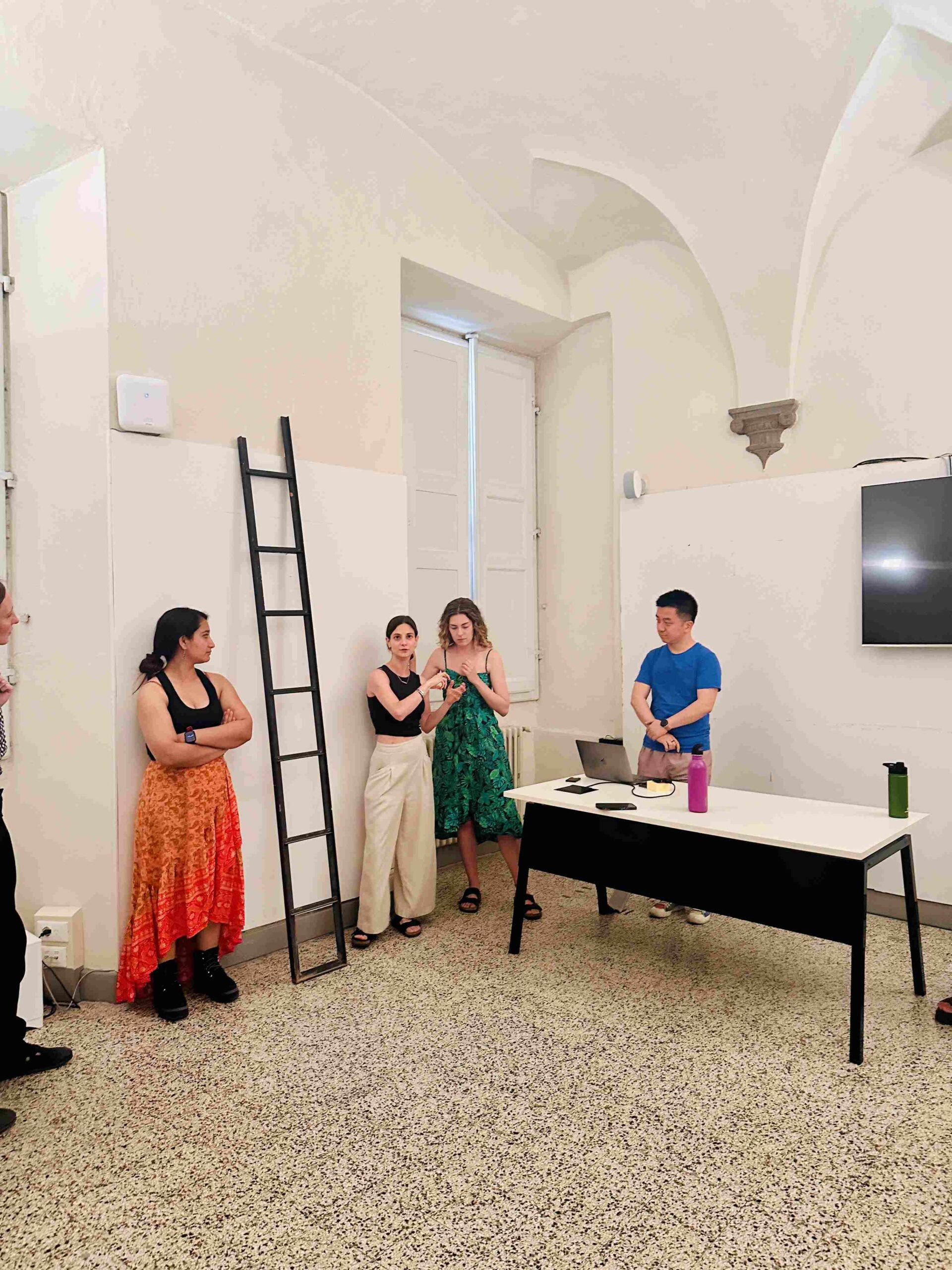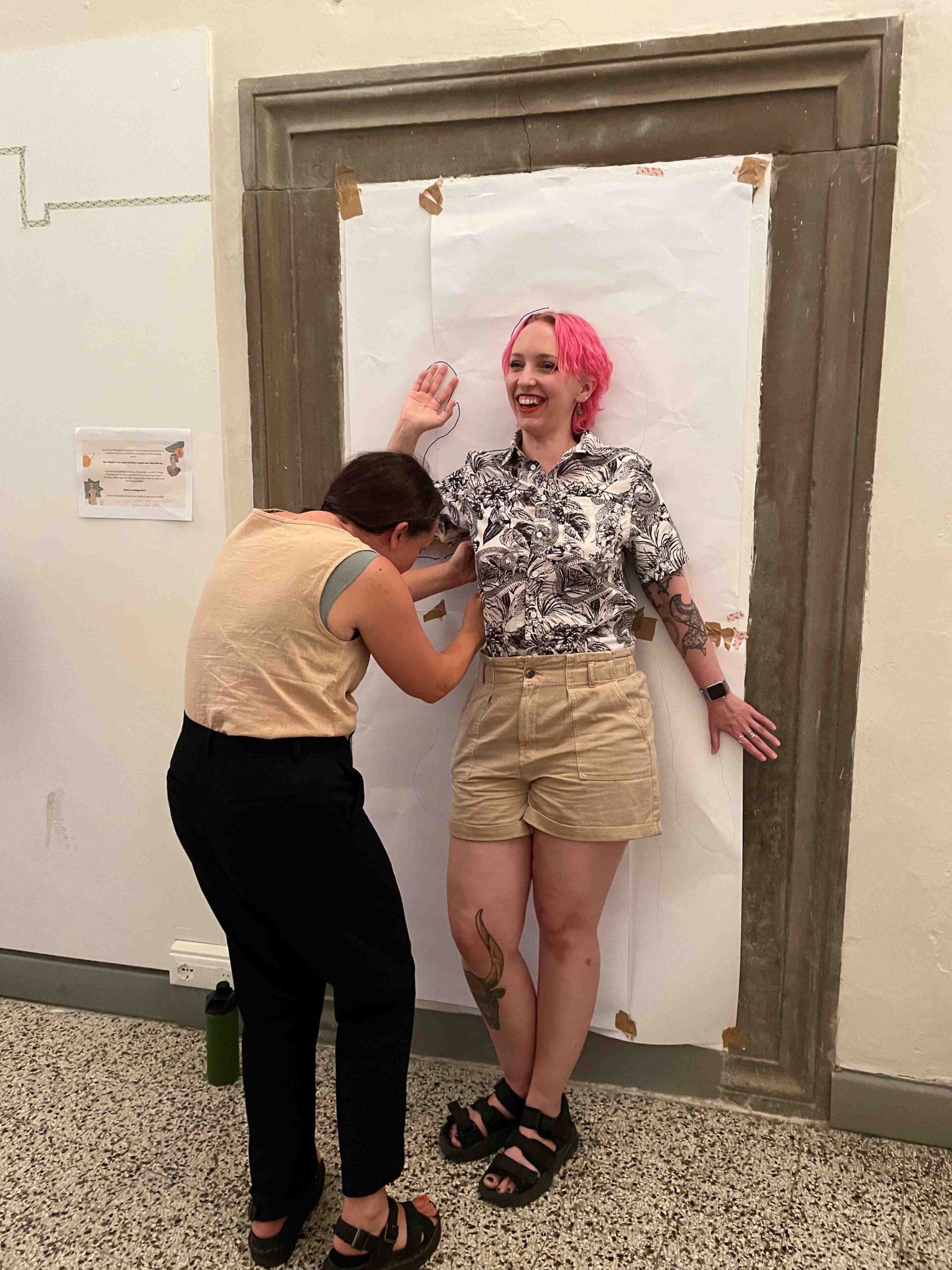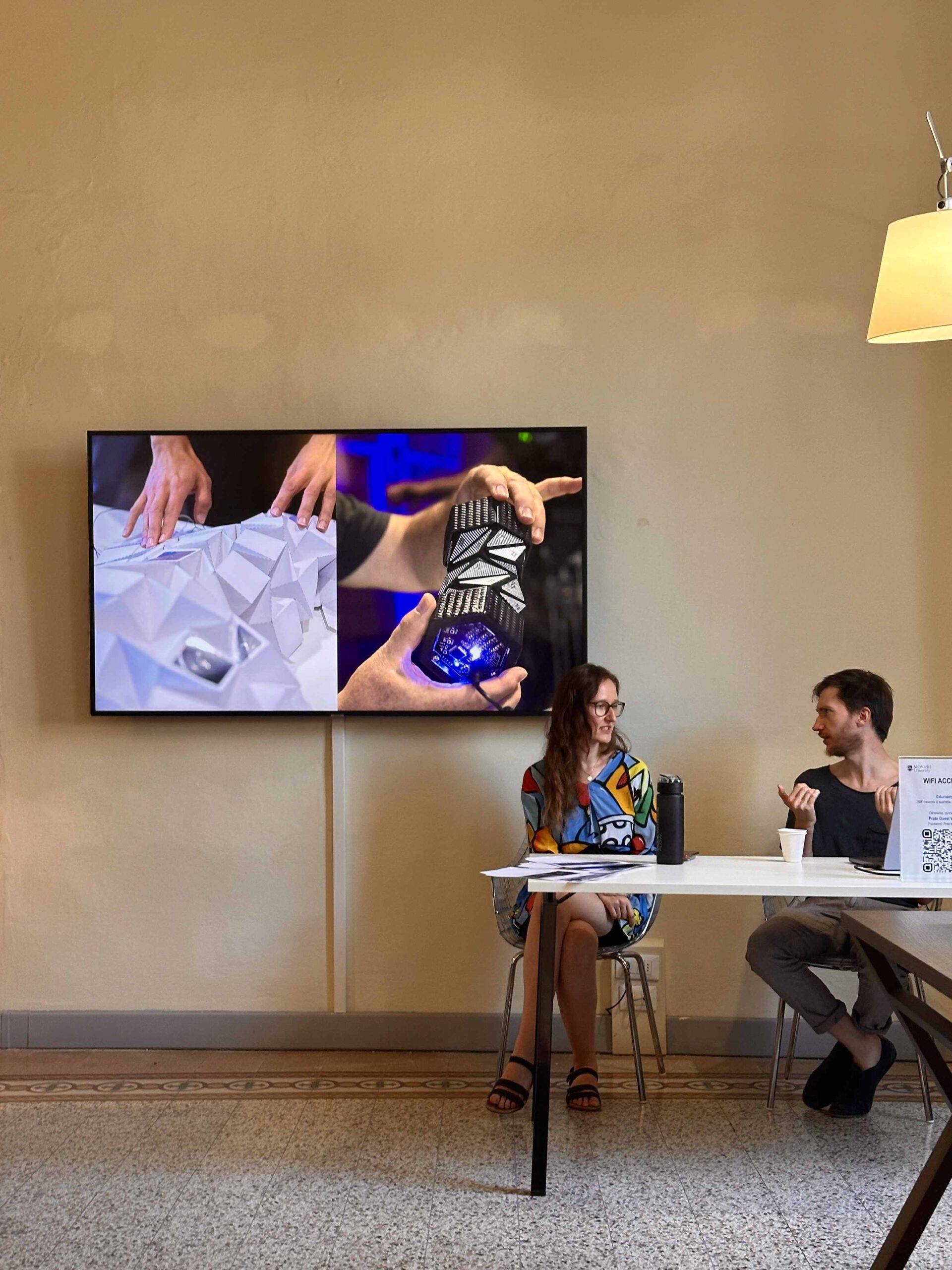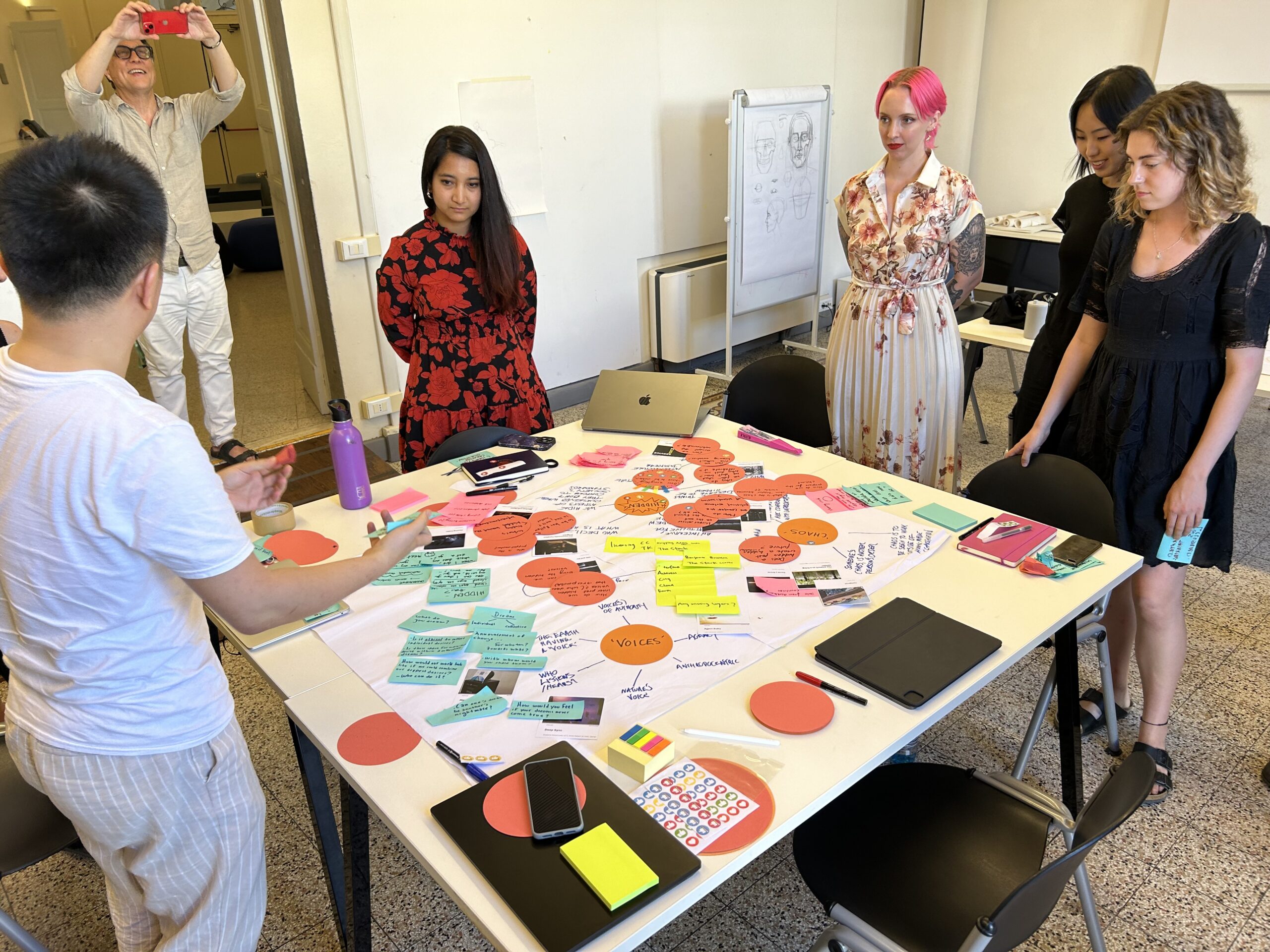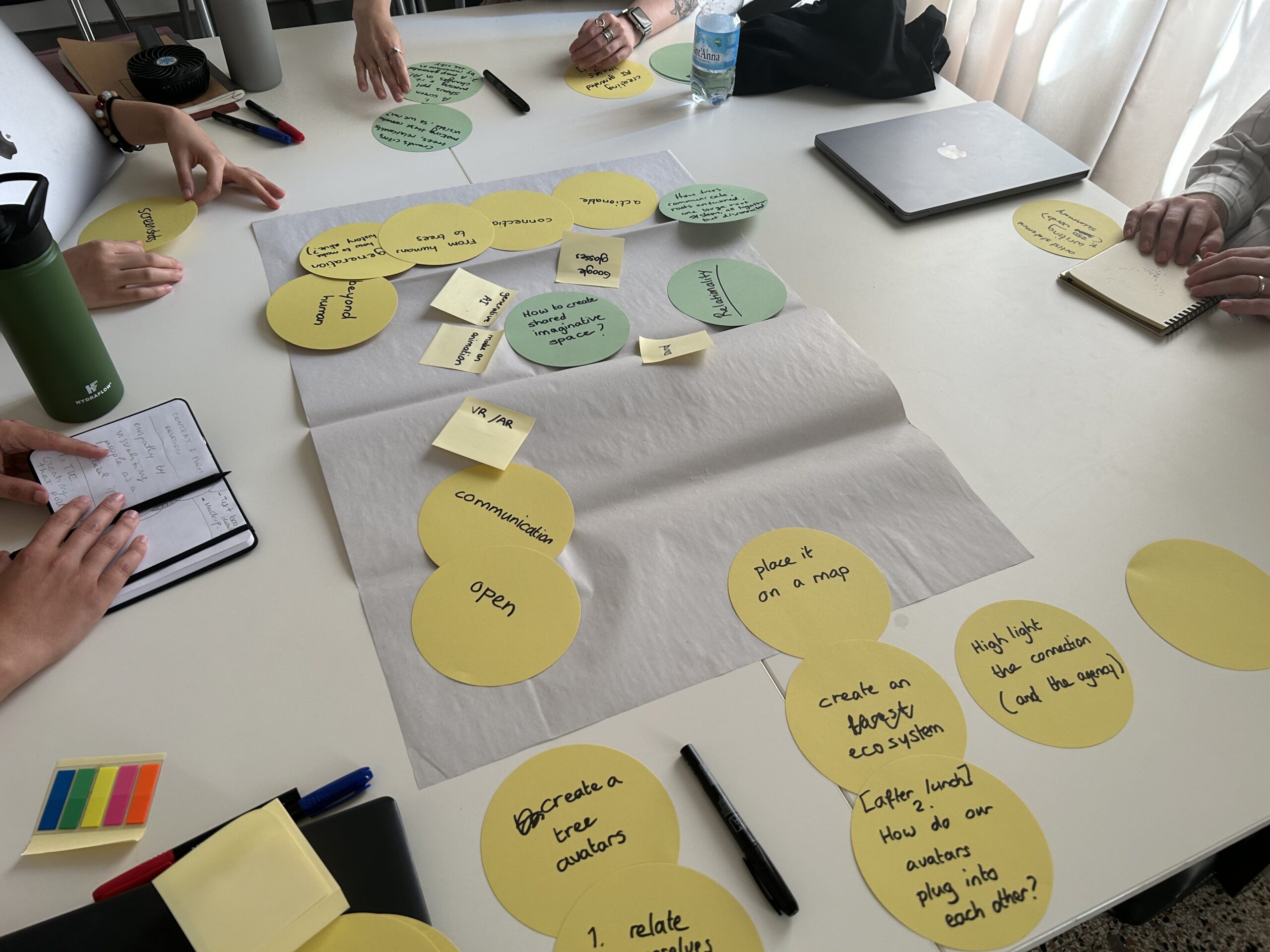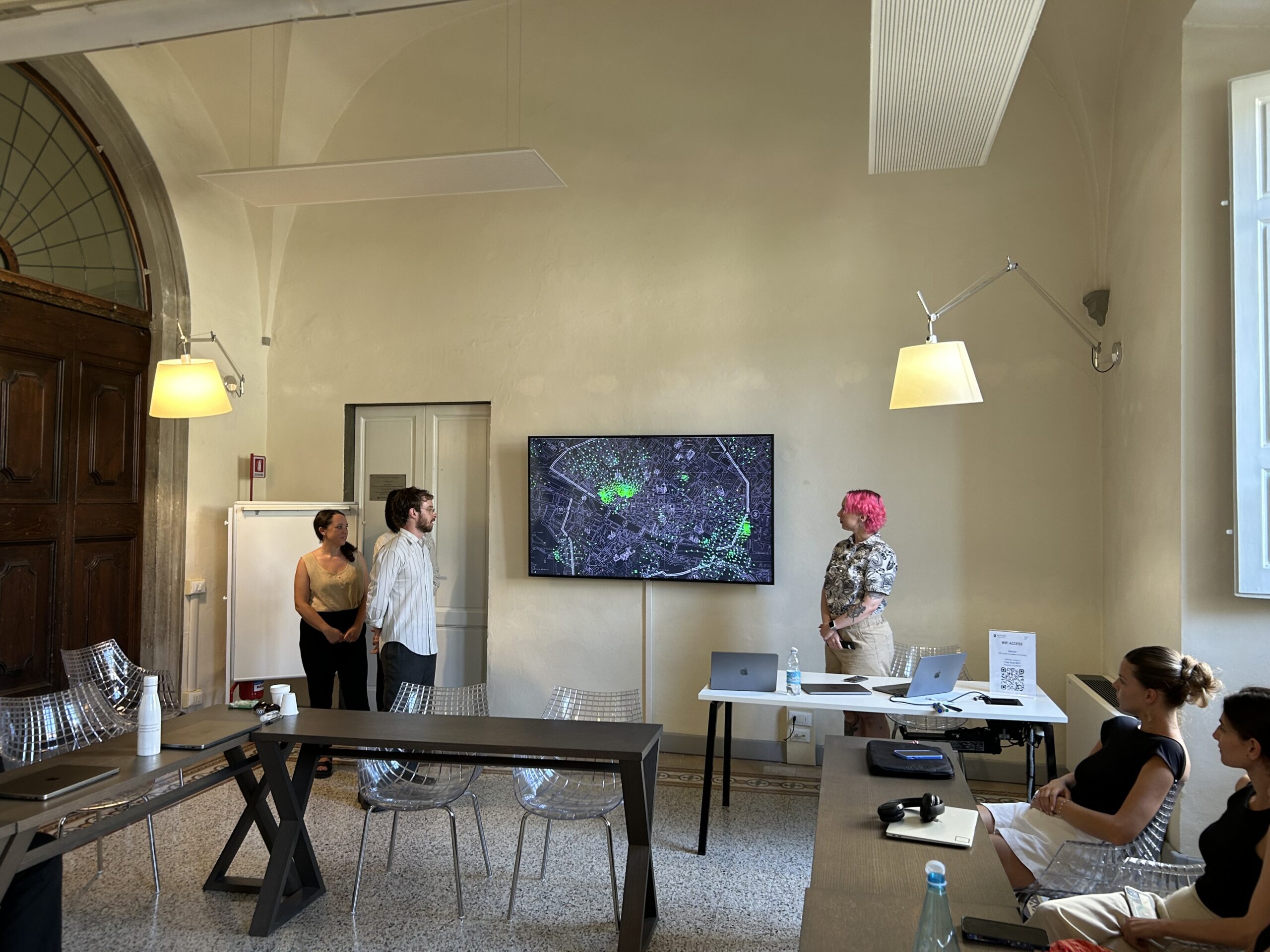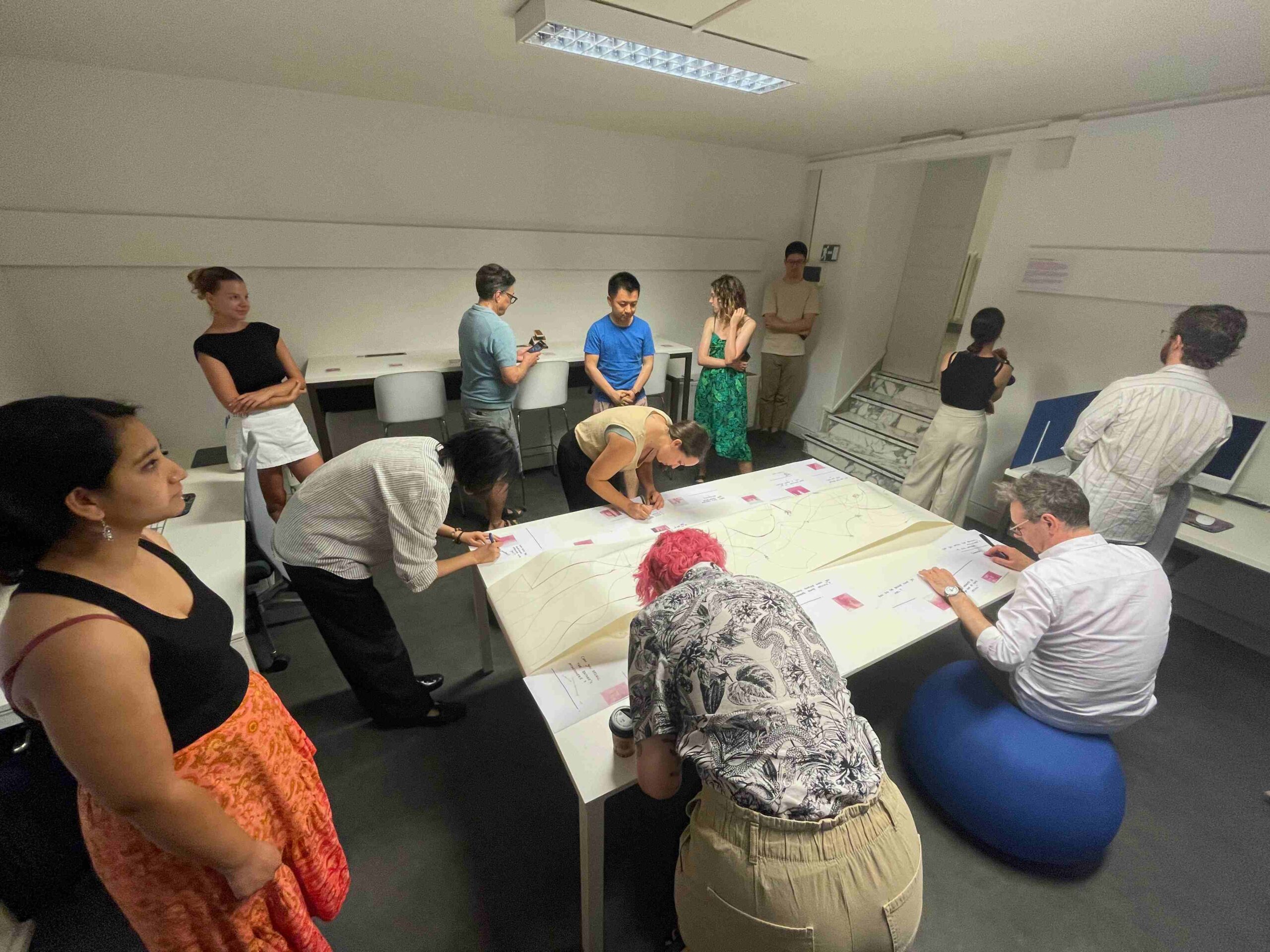To incorporate the Ars Electronica perspective and our experience with setting up transdisciplinary education formats, the Ars Electronica Futurelab was invited to co-host a transdisciplinary Summer Academy for postgraduate students in Prato, Italy, in July 2024.
Summer in the northern hemisphere is a chance for academic institutions to experiment with unusual formats: Summer schools, retreats, special seminars and anything else that diverges from the regularity of the academic year. In July 2024, Leicester University’s Institute for Digital Culture and Monash’s Sensilab, along with special collaborator Leiden University, invited the Ars Electronica Futurelab to co-host a three-day transdisciplinary “Summer Academy” for postgraduate students from their universities in Monash’s centre in Prato, Italy – a European base for the Australian university to connect to research and education networks, and to offer proximity to essential cultural heritage.
Two Futurelab researchers & artists, Anna Weiss and Peter Holzkorn, were invited to bring the Ars Electronica perspective and their particular experience with transdisciplinary and transsectoral education formats (e.g. Futurelab Academy, IT:U FOUNDING LAB) to the program. The theme “Creative Methods” inspired the hosts to challenge participants to expand their perspectives outside the scientific realm and “think as an artist”: Many of them involved in years-long PhD research on topics from transformative design and inclusive art encounters to platforming digital cultural heritage and the philosophy of creativity, they were suddenly prompted to ask questions that broke with the usual scientific rigour. They were asked to create hypothetical artworks and site-specific interventions that needed only their curious inspiration and inventiveness rather than careful analysis and justification. The industrial city Prato near Florence, in the shadow of its world-famous neighbour city but boasting a distinct character and rich tradition in textile manufacturing, provided a perfect context for trying to shift one’s perspective to fully embrace curiosity and discovery.
For day one, the Ars Electronica Futurelab hat conceptualized an Art Thinking workshop for the participants to find their “guiding spark” through the three-day programme. They articulated creative questions that formed a connection to their research, but also tied them together with one another in their ideation groups, breaking away from their predominantly individual day-to-day research work. The second day led the groups to a bustling Florence, where they were asked to find and creatively document spaces that might inspire them to sketches of artistic ideas. Such spaces would have to be chosen among the city’s contrasts – historic weight and hyperactive tourism, elegant edifices and monuments to power – and its deep cultural impact on today’s understanding of art and science.
On the final day, the three groups let themselves be led by their “guiding spark” and creative question, transforming the rich impressions and discussions into three tangible works: One, a series of speculative design interventions in the city of Florence that would make explicit its complicated identity; the second, an ad-hoc installation artwork addressing the nature of memory inspired by the group’s perception of the famous Ponte Vecchio; the third, a whole mini-exhibition tying together the participants’ diverse research interests with liminal spaces they were investigating in the city, from suppressed plant ecosystems to surveillance networks and body images reflected in the glossy storefronts.
The Prato Summer Academy was not a seminar that awards credits for their studies; it didn’t promise a chance to realize the ideas born in those three days; it can’t be placed in an established scheme, and it doesn’t directly feed into any of the research that the participants brought. Yet, every one of them found a valuable experience in it: Breaking the research norms to which one is bound to invite in forward-bringing perspectives; thinking in a way that is an opposite of one’s normal mode of work; completely switching context for a few days, and following strange ideas about the future in a historic building – together.
Credits
Ars Electronica Futurelab: Peter Holzkorn, Anna Weiss
Thanks to the hosts Ross Parry (University of Leicester), Vince Dziekan (Monash University), Karin de Wild (Leiden University)
